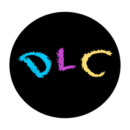What is Dyslexia?
Definition
Dyslexia Learning Center likes to define dyslexia (dis-lek-see-uh) as:
A learning difference that is unexpected and affects reading, writing, and spelling.
Alternatively, Ben Foss, dyslexic and author of The Dyslexia Empowerment Plan, gives the following definition: Dyslexia is a genetic, brain-based characteristic that results in difficulty connecting the sounds of spoken language to written words.
Ben Foss goes on to say:
It [dyslexia] can result in errors in reading or spelling as well as a number of areas not considered major life activities, such as determining right and left. Individuals who are dyslexic can be highly independent and intelligent.
Dyslexia is also characterized by a set of strengths that typically come with this profile in one or more of the following areas: verbal, social, narrative, spatial, kinesthetic, visual, mathematical, or musical skills. Overall, it is characterized by an increased ability to perceive broad patterns and a reduced ability to perceive fine detail in systems.
Most importantly, there are degrees of severity when it comes to dyslexia from mild to profound. It is manifested by difficulties in receptive and expressive language, including phonological processing: in reading, writing, spelling, handwriting, and sometimes in arithmetic, for example. Therefore, this learning difference makes it unexpectedly difficult to read, write, and spell (in relation to the person’s age, intelligence, education, etc.).
More information can be found (here). Including, a quick list of noticeable characteristics.
Although dyslexia is lifelong, individuals with dyslexia often respond successfully to timely and appropriate intervention.

Success Begins Today!
Sources

Success stories, scientific research, and practical resources.


